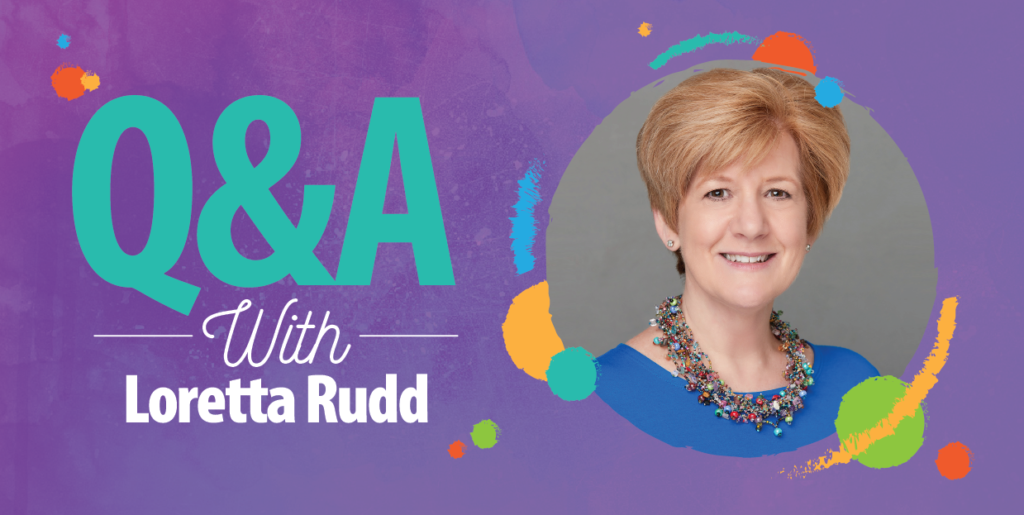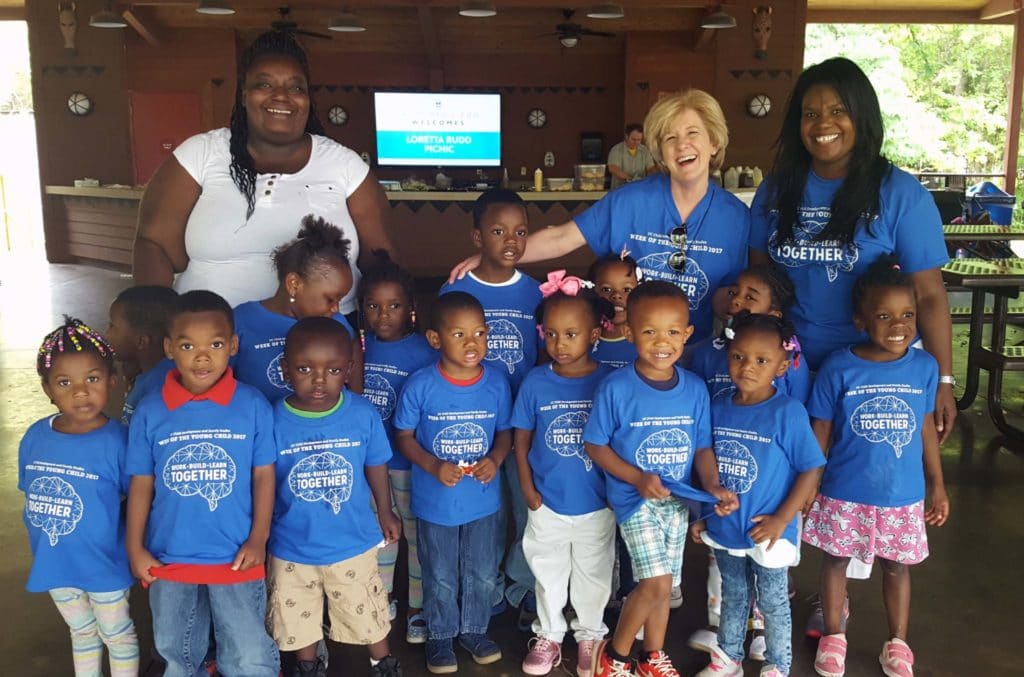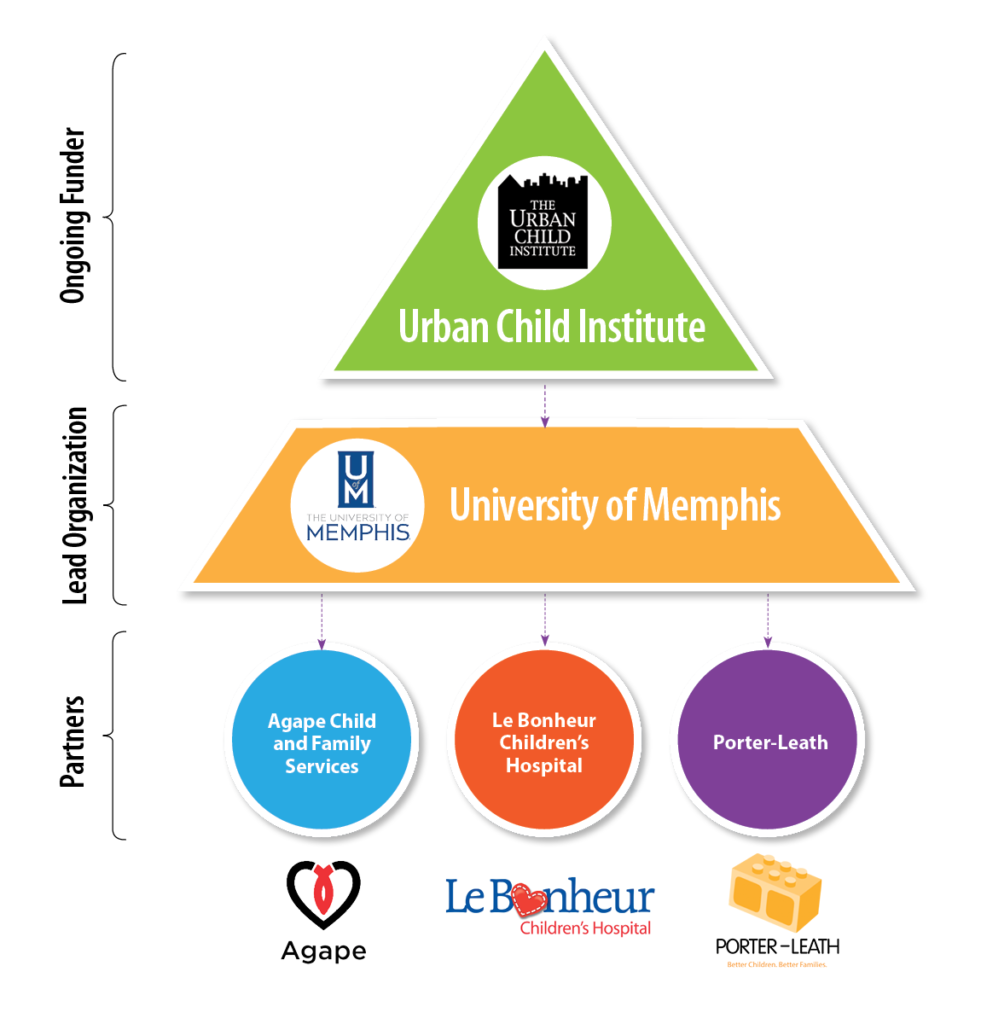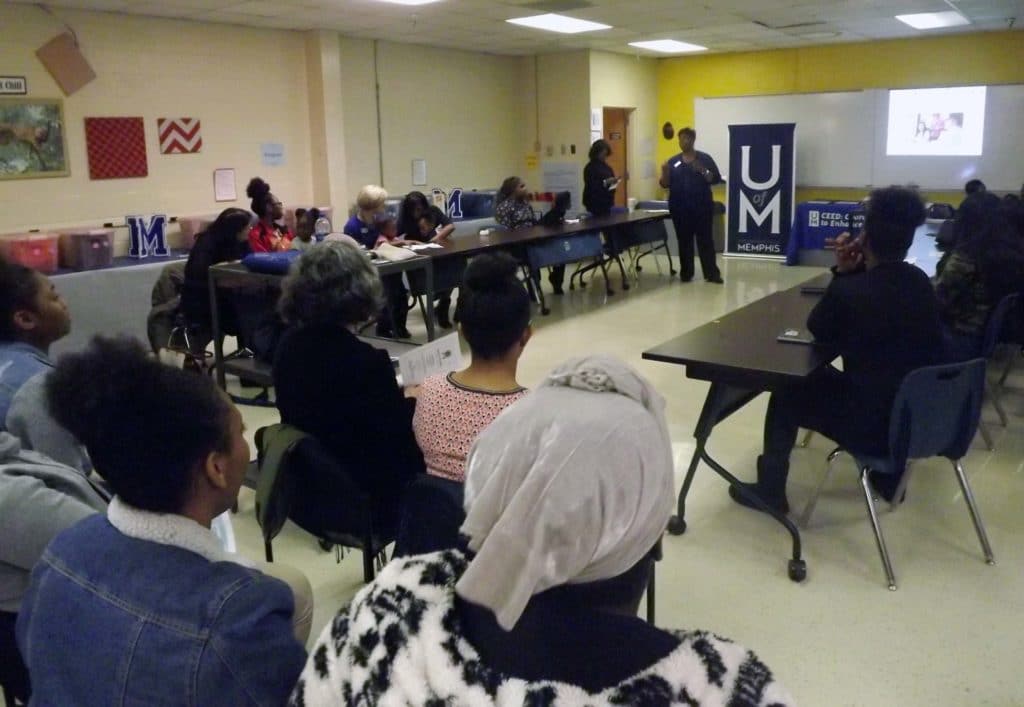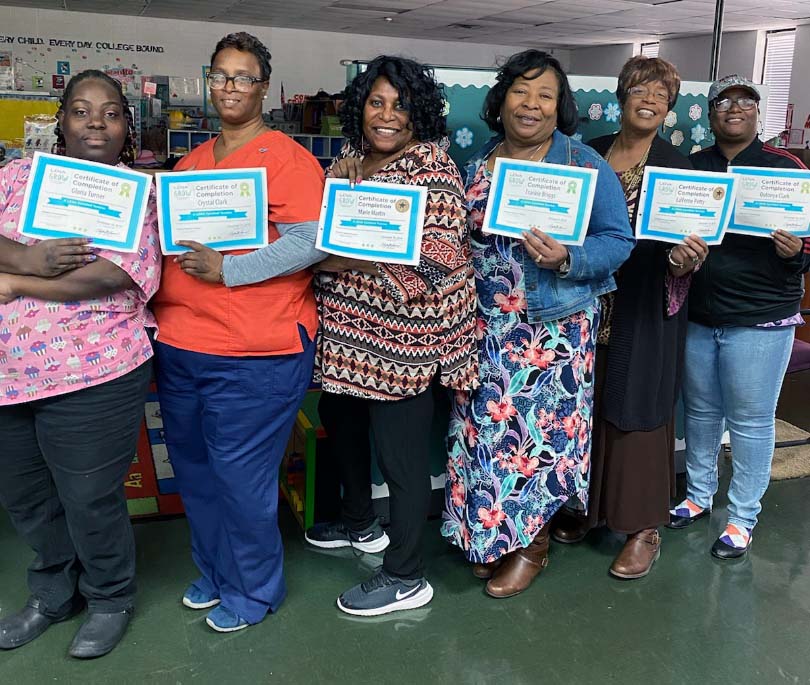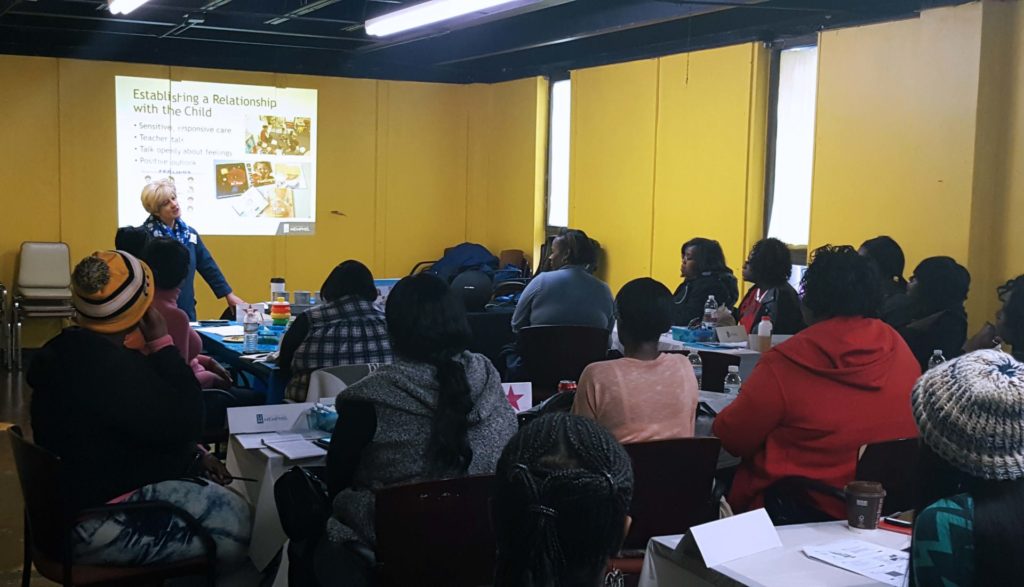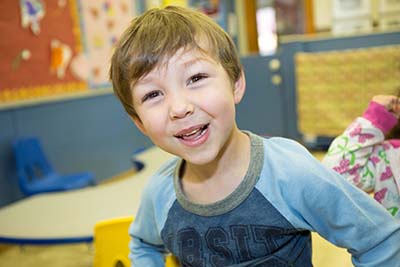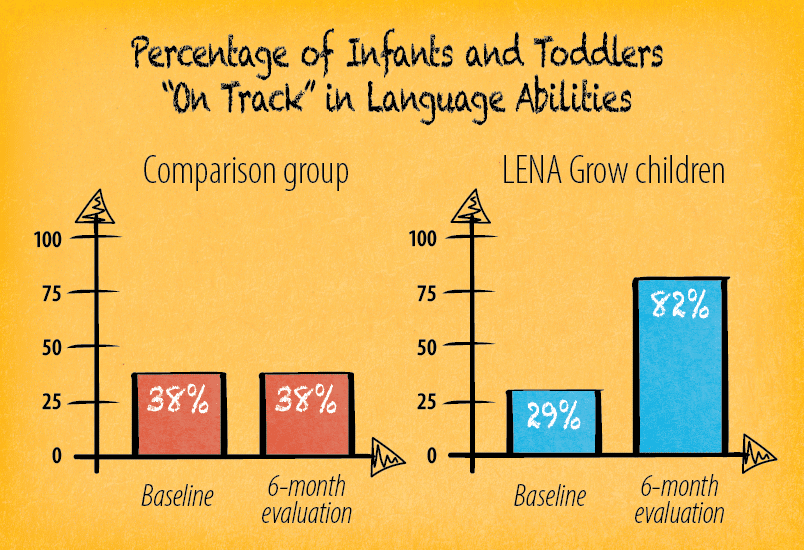Dr. Loretta Rudd is a clinical associate professor and program coordinator in the child development and family studies department at the University of Memphis. She spearheaded expanding LENA programs in Memphis through grant writing and community organizing. We caught up with her to learn more about the university’s role in the local LENA partnership and her vision for success in Memphis, where the poverty rate is 27.8% and the child poverty rate is 44.9%, more than twice the national average.
Could you start out by describing the partnership in Memphis? What is the role of the university?
Seeding Success, a collective impact partnership in Shelby County, was awarded LENA Start Launch Funds in 2017. They worked with Porter Leath, a community resource center, and our team at the University of Memphis to administer LENA Start for the first two years.
At the end of that two-year cycle, the Urban Child Institute approached me to see if the university was interested in taking the lead on the project to secure more funding. I agreed to write a grant proposal to the Urban Child Institute, which provided another $500,000 to implement LENA programs through 2020. The University of Memphis now oversees the four groups that are offering LENA programs locally, as well as offering all three programs directly.
Learn how universities have taken on an innovative role in the cradle-to-career pipeline in their communities.
Why do think the University of Memphis is well positioned to be the backbone organization in this implementation?
We’re the premier institution of higher education in the city of Memphis, and we have a really robust child development and family studies program here. The students are very interested in working with families who have children ages 0-4. The university has been working in the community in early care and learning settings like family child care homes and child care centers in the Memphis area to enhance professional development and enrich language and social-emotional development in care. So, this was a natural fit with the outreach work we were already doing and with what our students have been learning, and we felt really confident in taking the lead. Working with LENA in the community fits right into the university’s mission of conducting research and service that benefits the local and global communities.
Which organizations is the university partnering with to meet families where they are in Memphis?
The first partner we’re working with is Agape Child and Family Services, which has a grant of more than a million dollars from the state to implement a two-generation model for reducing poverty. They’re mainly focused on grade school and above, so the Urban Child Institute asked them to consider moving younger and working with preschoolers. They said yes and were eager to partner with us on LENA. Agape offers LENA Start and LENA Home.
The second partner is Porter Leath, a community resource center that’s the local grant holder for Early Head Start and contracts with Shelby County Schools to run Head Start as well. They offered LENA Start for the first two years, but they’re passionate about training child care providers, so now they’re implementing LENA Grow. We’re partnering with Porter Leath in the upcoming year to look at how children fare who get a higher dosage of LENA. We’ll ask families who have a child in a LENA Grow classroom to participate in LENA Start as well. Then, we’ll compare outcomes for children who get the double dose against children who did not participate in a LENA program.
The third partner is Le Bonheur Children’s Hospital, that’s offering LENA Home through their Nurse-Family Partnership home-visiting program.
What need are you trying to address with LENA programs?
The biggest need is kindergarten readiness. We’re going to track the children who participate in LENA programs through kindergarten and beyond to see how they fare compared to their schoolmates who did not have LENA. We’ll have them take a kindergarten readiness assessment to assess their development across all domains, including language and social-emotional development.
Why is this work important to you?
I did my dissertation from 2000 to 2003 looking at enhancing joint attention and group care and studying how that affected children’s language development. I wish we had the LENA devices back then, because we were using tiny hand-held video cameras and watching hours and hours of video to study children’s eye gaze. So, I was really focused on the concept of joint attention, and years later when I learned about how LENA focuses on increasing interactions — as opposed to just the word counting that Hart and Risley did — I was like yes, that’s it! I feel like I’ve come full circle in terms of my own work.
As an expert in child development, why do you think having back-and-forth interactions with children is so important?
In every child development class our students at the University of Memphis take, we’ve woven in how the importance of early experiences and secure attachments relate to children’s trajectory of success. Here in Memphis, where the number of adults with ACE scores above four is double the national average, we feel confident that it’s important to give parents of young children a tool to use that they may not have learned or experienced themselves.
What aspects of LENA programs have worked best?
The parental reports are simple enough that someone can look at a glance and get excited about it, even for individuals with limited educational attainment. I find that to be really inspiring. When I watch parents at sessions, they clearly do care about the stars. Both the reports and the stars are a great way for them to be able to see how making changes in their behavior makes changes for their child.
What is your vision for how LENA programs are part of the overall school readiness solution in Memphis?
If I had all the money in the world, I would want every single family to be able to participate in LENA, most importantly those families who are economically challenged, in an effort to really set a firm foundation for future academic success. LENA talks a lot about the benefits of increasing language with children, but we know that when we affect development in one area, we affect development in every area. I feel like LENA fits perfectly with a focus on social and emotional development.
The goal would be to have everyone participate if they wanted. I’d like to recruit families in the hospital when the baby is born. We’re actually working this fall with an OB-GYN at a regional medical center who is embarking on a program with pregnant moms in their third trimester. The moms will be watching really short video vignettes about talking, reading, and singing with your baby, then the doctor will give them the LENA info as well. We’re hoping by mid-spring to be able to host a LENA Start group at the clinic.
How do you see LENA programming continuing to expand through the city?
We’re on track to reach about 600 children by 2020. I’d like it to be many more children than that, so we’re discussing partnering the Shelby County School system to boost kindergarten readiness, but we need some outcomes data first to be able to really indicate that LENA programs have made a difference. We’ll be evaluating children who went through the program in 2017 at the end of next summer to understand their level of kindergarten readiness.
What would you say to folks at another university considering a similar role in a LENA implementation?
First, if you don’t already have boots on the ground in early care and learning facilities, LENA Grow is probably not going to work for you. Since the University of Memphis has already built relationships with those partners, it worked well for us.
Second, you really need to allow at least three months for recruitment of parents and families for LENA Start. It’s difficult to recruit for Start at first, and it took us a while to make the connections with libraries and community organizations in neighborhoods that had both a high density of poverty and children under the age of three. If your university has a medical school, that would be a great way to work with pediatricians and OBGYNs to serve families. A lot of people haven’t thought about that possibility, and it’s a really exciting aspect. I’m most excited about that right now as a way to recruit families.
We also recruited University of Memphis students who are parents of young children to participate. We brought them together through an official student organization, just to get together and have fun, but it also helped us to identify college-aged parents with young children. That group is really eager to start a LENA Start class on campus, and we’re looking at doing that during the spring semester.
We’ve learned we really have to find a way to meet parents where they live. We’re expecting we’ll have more people than we can serve this spring, because we’ve connected with city libraries and fire stations. The fire stations almost all have a gathering room, they’re situated in neighborhoods, and people trust them.
Third, you’ve got to have a really strong manager of the project. You might have a project manager who writes the grant, and this might fulfill some of their research requirements, but then they’ll have classes to teach. It helps to have a really good project manager who can manage all the other pieces of the implementation.



